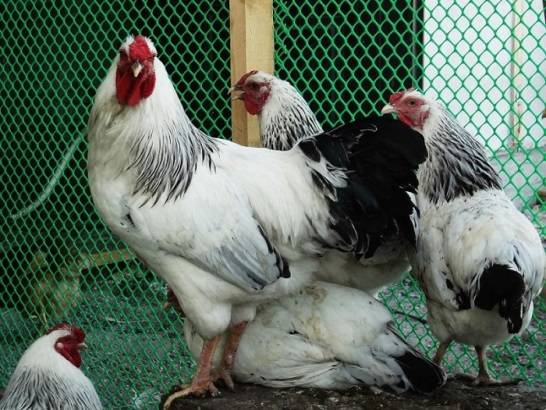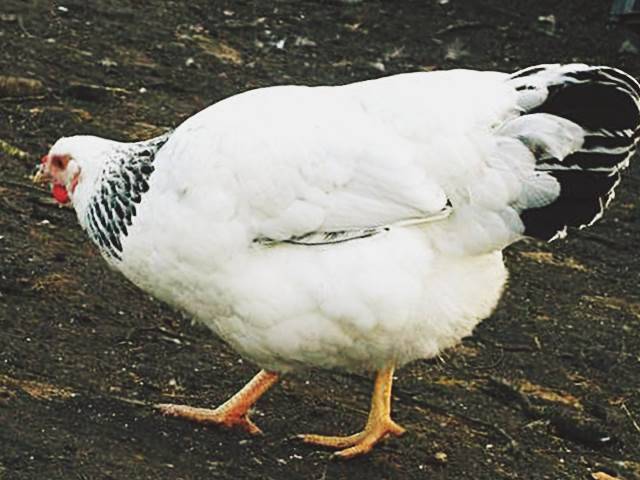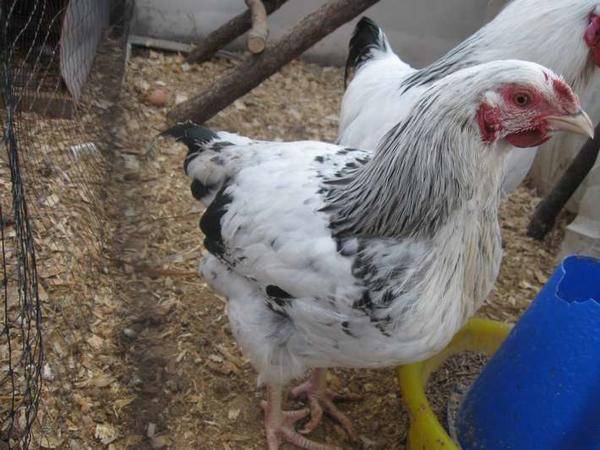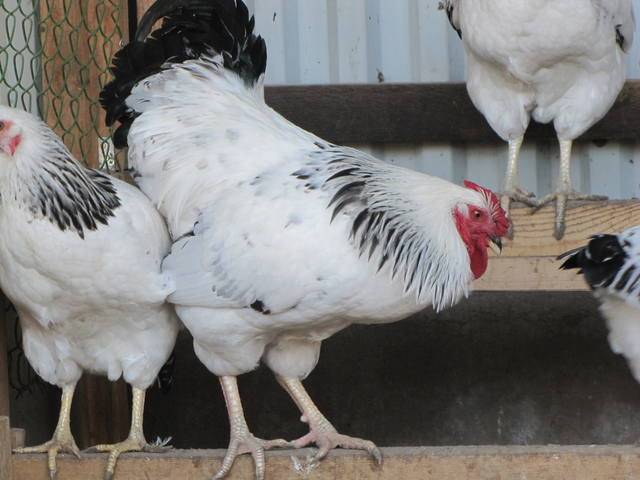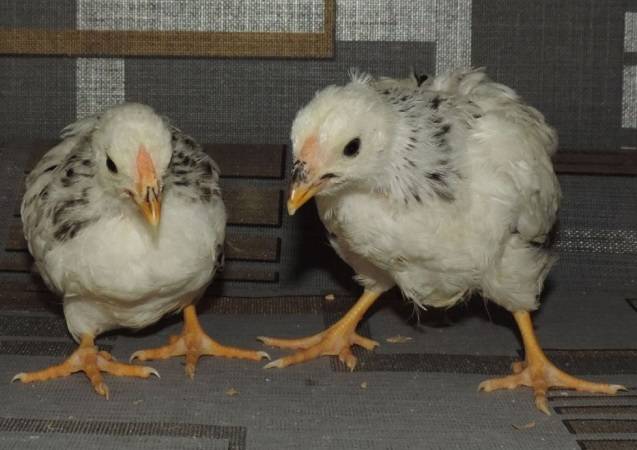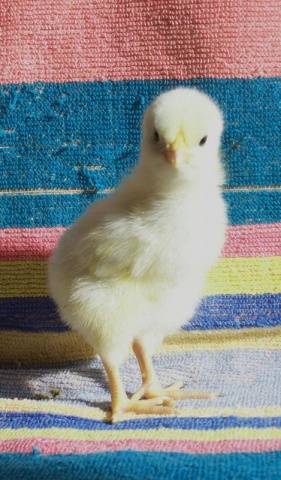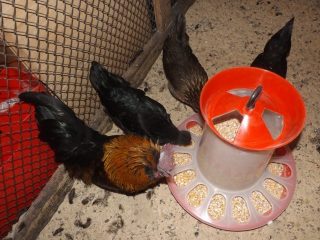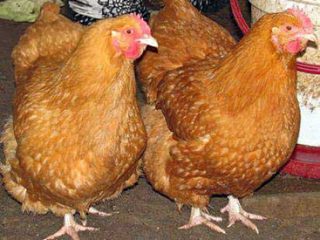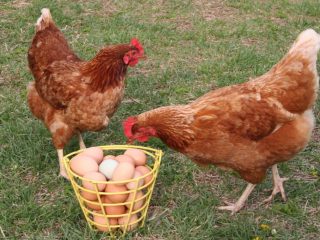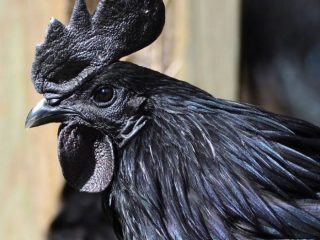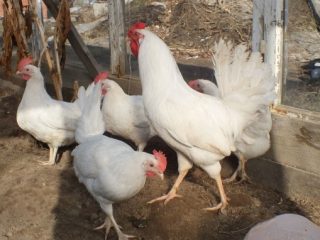Content
According to modern owners, Pervomayskaya breed of chickens - one of the most successful among those that were bred during the Soviet era. The breeding of May Day chickens began in 1935. The breeders were tasked with breeding a large breed with high egg production, high-quality meat and calmly tolerating the Russian climate. Previously, these three qualities were usually present in three different breeds, but it was necessary to combine in one. But the zootechnicians coped with the task.
Moreover, they managed in such a way that today someone may have a delusion that in genetics 1 + 1 + 1 = 3. In fact, a colossal work was carried out on the selection, breeding and further selection of offspring according to the necessary characteristics.
Three breeds were used to breed Pervomayskaya:
- The Wyandots gave quality meat;
- Rhode Islands - high egg production in winter;
- Yurlovskaya vociferous added frost resistance.
The May Day breed of chickens was registered in 1941. Bred chickens in the state farm. May 1st in the Kharkiv region. Almost immediately after registration, a war swept across the area. After the war, only fifty birds remained from the breed. But the productive characteristics of the May Day chickens were too good to simply refuse to restore the livestock. From the remaining 54 individuals, a dozen of the best layers and a rooster were selected and started anew. By 1962, nothing threatened the breed. The total number of chickens of this breed has reached 56 thousand. Today, May Day chickens are bred in the farmsteads of Belarus, Russia and Ukraine.
Description
The description of the May Day breed of chickens draws a rather large bird of meat and egg direction. The weight of males exceeds 3 kg and averages 3.2-3.7 kg. Chickens weigh 2-2.5 kg.
The dense, massive body is set on relatively short legs. This is very clearly visible if you look at the photo of a laying hen of the May Day breed of chickens.
The head is small, wide, with a small pink ridge. Pink-shaped ridges are preferable for breeds living in regions where there are severe frosts. These ridges have less risk of frostbite. The face, lobes and earrings are red. Earrings are rather long, oval in shape. The beak is black and yellow. A yellow border runs along the edges of the beak.
As you can see in the photo, the neck of the May Day breed of chickens is short. The back is wide and straight. Well muscled shoulders. The wings are tightly pressed against the body. The tail is fluffy. The chicken's tail is almost horizontal. In a rooster, the tail should be vertical. Both sexes have short tails. The rooster's braids are poorly developed.
The chest is broad and well muscled. The belly is well developed. The legs are short with powerful hips. Metatarsus unfeathered, yellow.
The plumage is dense, well fitting to the body. The color of the May Day Colombian chickens:
- the head is white;
- lanceolate feathers on the mane are black with a white shaft;
- the body is pure white;
- the wings are white on the outside, with black feathers on the inside;
- the lanceolate feathers on the loin of the rooster are white;
- tail feathers are black, chickens may have white edging.
The shade of dark feathers can range from charcoal black to dark gray.
Disqualifying vices
The Pervomaiskaya breed of chickens should not have long hocks. The color of the metatarsus cannot be white and pink. The defect is white lobes and a leaf-shaped crest. Dark feathers on the body are also unacceptable.
In the photo of this rooster of the Pervomaiskaya breed of chickens, there are two drawbacks, because of which the reviews about the breed are unlikely to be flattering: dark feathers on the body and white-pink metatarsals. With a high degree of probability, the rooster has an admixture of other blood, which means that the offspring from it will not be purebred.
Character
The matured Pervomayskys are distinguished by a very calm disposition. They are not afraid of people and do not fight other chickens. But farmers note that up to 5 months these chickens of the May Day breed are somewhat wild.
Productivity
For meat and egg breed, Pervomaiskie layers are distinguished by high egg production. Their first oviposition begins at 6-7 months. For a year, laying hens of this breed can produce from 150 to 190 eggs with an average weight of 65 g. Pullets lay eggs weighing 55 g. In winter, egg production does not stop, but decreases by 20-30%. The shell color can vary from light brown to dark brown.
The meat characteristics of the breed are not bad either. Three month old males weigh more than 2 kg. According to reviews, the meat of May Day chickens is juicy and tender in taste.
Content
May Day are quite finicky in content. Their best qualities are manifested only with a properly composed diet and well-organized living conditions. The Pervomaiskaya breed is not at all similar to the "standard" village layers.
The description indicates that the breed is frost-resistant, and many owners calmly keep these chickens in unheated chicken coops. And the birds start to get sick. After that, there are reviews that the description of the May Day breed of chickens is incorrect and there is no photo confirming that these birds can feel good in cold weather. There really is no photo, and for good health in winter, May Day must necessarily receive vitamin supplements.
In the spring, chickens must be sure to put trays with sand or ash so that birds walking on the street can dry and clean their feathers.
Breeding
For the first flock, it is better to buy a hatching egg from poultry farms that breed purebred birds. After receiving the chicks, they must be sorted by signs of deformity. The plus of the breed - a good response to breeding work, is its minus.
At birth, in a population of any animals with desirable traits, approximately the same percentage of animals with unnecessary traits are born. Therefore, if you need to improve the breed, the selection of chickens must be done very strictly and more than once.
How to select
The first culling is done immediately after hatching. Rejected on grounds of deformity and health. But usually these chickens die on their own within 1-2 days. The second time the chickens are selected at 2-3 months, removing from potential broodstock individuals with non-pink scallops, too large or any color other than red. Birds with white metatarsals are also discarded. The last time the herd is "cleaned" after juvenile molt, when the exact color of the hen becomes clear.
With closely related breeding, the manifestation of deformities and defects is most likely.
From the remaining individuals, a group of 8-10 chickens per rooster is selected for breeding. Fewer females are highly undesirable as males are very active and can kill females. For small private farms, there are three ways to get quality poultry.
First option
Purchase of hatching eggs from different factories for the subsequent creation of two unrelated families. Each of the families should have a main and spare roosters. First generation chickens are obtained from these chickens. Roosters of the first generations, obtained from the original herd, are slaughtered, and the pullets are left in their family.
Next year, the second generation of home-grown Pervomayskys will be obtained from the abandoned pullets, and further "family" ties become undesirable.Therefore, a young rooster is chosen from a parallel family to replace the old one, and young roosters in families are mixed in a proportion of 50 “friends” / 50 “aliens”. The cycle is repeated the next year. This method allows you to breed chickens without bleeding for 7-10 years. Then birds are required from the side.
Second option
In the presence of large areas, if a sufficient number of eggs were purchased and, preferably, from different factories, 5 groups can be formed. Of the four groups of grown chickens, 2 lines are formed, planting a rooster from the second to the chickens of the first group. The fifth is multiplied in itself and kept as a reserve. In the group from which the males are selected, only the largest bird is allowed to breed. In the "chicken" group, the best layers are used for breeding.
The third option
Suitable for those who do not have the opportunity to purchase and incubate the eggs of purebred hens, but there are outlets for purebred unrelated roosters.
In this case, the "blood purification" method is applied using purebred males. Outbred chickens are crossed with the first rooster. The offspring are allowed to breed with the second. The third generation is crossed with the third. In order not to get confused, the previous groups of chickens can be sent to the slaughter for the winter. Among the young, a strict selection is carried out for the exterior and productivity. As a result, chickens are obtained that are practically indistinguishable from real thoroughbred. Although sometimes "outbred" genes can "shoot".
In this case, one should not be surprised at the appearance of qualities that are not characteristic of May Day chickens.
Testimonials
Conclusion
The owners' reviews are often the opposite of the description and photo of the May Day breed of chickens. But with the photo, the problem is more often that not a purebred bird was purchased. And to the description, most of the claims to immunity and frost resistance. But just these qualities in animals largely depend on the conditions of detention and diet. With vitamin deficiencies, the birds are guaranteed to get sick and the breed is not to blame for this.
At the same time, there are rave reviews, when the chickens claim that, in addition to the Pervomaiskiye, they do not need other chickens. Therefore, we can conclude that the breed reveals itself with proper maintenance.
